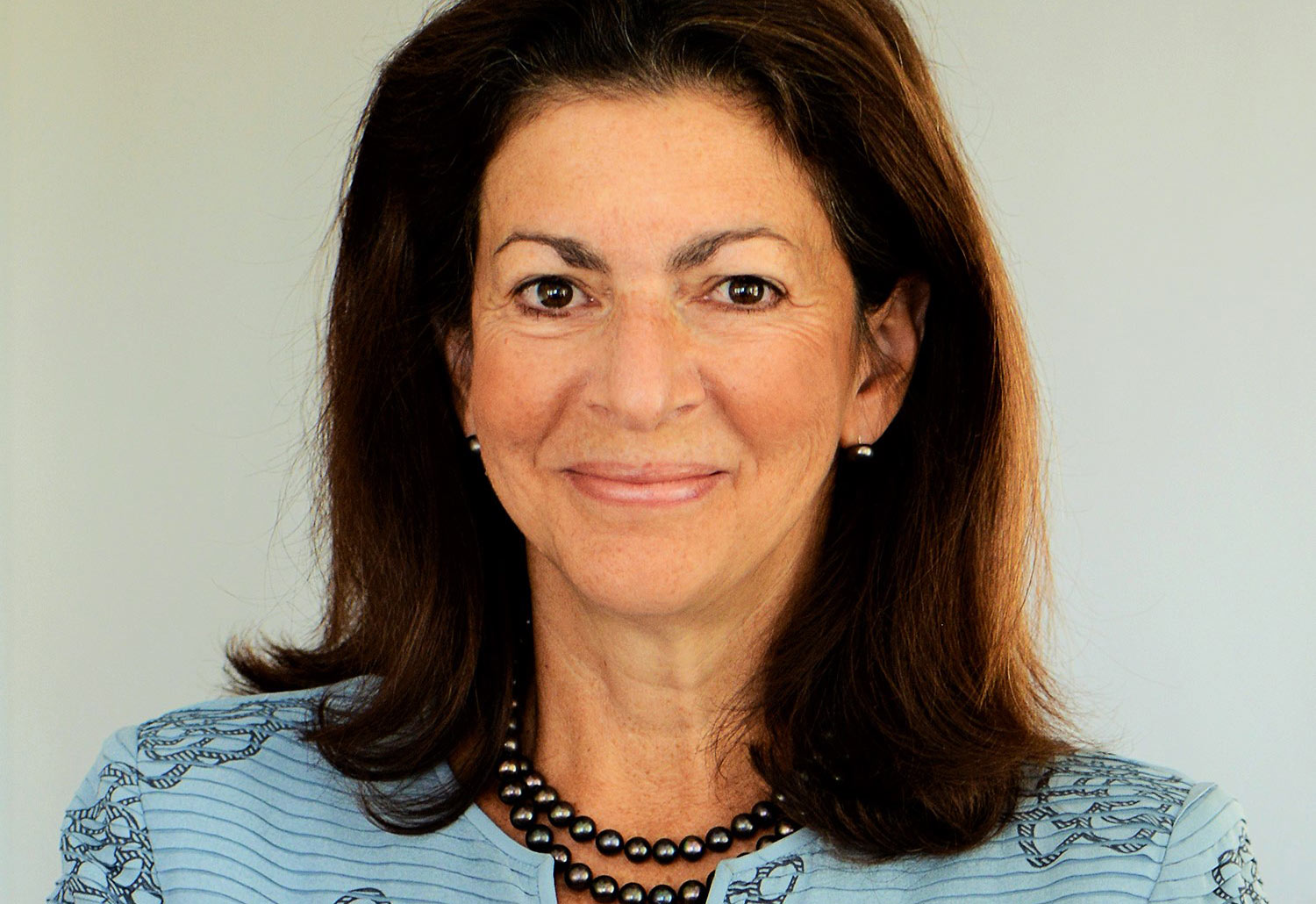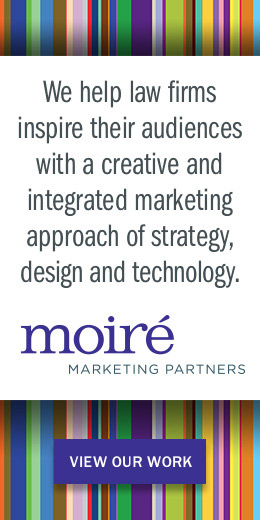Two years ago, Bryan Cave named Therese Pritchard as its Chair, the first woman to hold the title in its 140-year-plus history. Pritchard joined a new class of women assuming top roles at major firms, including Jami Wintz McKeon, who was named Morgan Lewis’s Chair the same year. Today, Pritchard is one of more than a dozen women who hold a key leadership role in an Am Law 200 firm, a number that includes some co-chairs, regional heads and firmwide managing partners.
While the number is modest, Pritchard remember the days when women lawyers in leadership positions were much harder to find. At the beginning of her career during the 1980s at the US Securities and Exchange Commission—where she took on high-profile targets, including Ivan Boesky and Michael Milken—she confronted the biases that have long plagued the legal industry. In one telling incident, she was passed up for a promotion in favor of a male colleague; the reason, she was told, was that he had a family to support—despite the fact she too was married with a kid. And yet Pritchard still managed to rise to become an assistant director in the Division of Enforcement and win the Manuel Cohen Outstanding Younger Lawyer Award in recognition of her achievements at the agency.
The opportunities for women have improved. Indeed Bryan Cave is a perfect example. When Pritchard first arrived at Bryan Cave, there was just one woman on the executive committee. But now women are well-represented at the top ranks of the firm, which has been recertified as a Gold Standard firm three times. Pritchard spoke to the WILEF Tribune about leadership and the challenges still confronting women in the law.
Two years into the job as chair, what have you learned about what it takes to be an effective law firm leader at this moment?
Listening—both to clients and to colleagues. I think successful firms understand their clients’ businesses. They focus on hearing what their clients want to accomplish. And lawyers in successful firms listen to their clients and focus on client service so they can align their interests with their clients. That’s what we encourage at the firm.
I spend more time than I initially did meeting with clients—getting their feedback on how we’re doing and whether we’re responding to their needs. I make a lot of effort to ensure we understand what they want from us, and that we’re doing everything we can to address their needs and desires. I share that feedback with our lawyers. And we talk about how we can align our interest with theirs so we can help them achieve their business goals.
What other qualities or skills are needed for law firm leaders?
I think it is largely about taking what you hear and using it to create a vision and strategic direction. It’s important to be collaborative but also to be decisive. Chairs of firms have to make hard decisions so you can’t be a shrinking violet. You need to let people know you’re open to hearing their views but at the end of the day you’ll make the decision you believe is fair and in the best interest of the firm and its clients.
Have you felt extra pressure because you are the first woman to hold the title of Chair?
It’s an interesting question. I know I feel pressure to perform—I’ll tell you that. I don’t know if it’s because I’m the first woman or if it’s because I care about this institution and its people. And I care about the clients. It’s hard to know why I feel the pressure. Obviously, I want us to be as successful as we can be.
When did a position in management become appealing to you or seem like a possibility?
My career was a little different. I didn’t start at a law firm. My experience in management is also different. I had my first management role at the SEC a little over five years after I passed the bar. In the government, successful performances go hand in hand with increasing responsibility. You do a good job, they move you up, and suddenly you’re responsible for people. And I liked it. I liked trying to motivate people and strategize about how to reach the broader goals of the institution. So, from those early days, I stuck with it and obviously, here I am.
What do lawyers need to know or appreciate about the sacrifices required to take on a leadership role?
Leadership positions in law firms are usually taken in addition to a vibrant practice, not in place of it. You have to continue to respond to clients’ needs as you would as a working lawyer, and you also have to find the time and energy to lead and to strategize and to handle administrative matters. So, it’s a lot of extra work. For me, it was worth it because it really made me feel much more part of this organization in a special way. I think it enabled me to grow professionally.
You must make a lot of difficult decision. Do you have someone whom you confer with on the most difficult?
I work very closely with the management committee. I rely on their counsel. I rarely make a thorny decision without consulting them. I don’t always follow their advice, but I usually do, and it’s helpful to talk those kind of things through with them.
What drew you to the law in the first place?
My father was a lawyer. I would say two things from his perspective. He loved the intellectual stimulation but also he talked about being a lawyer with being synonymous with a search for justice and fairness. And when I was a kid, that sounded like a good thing to spend one’s life pursuing.
Who have been the biggest influences on your career?
I could say [my dad] because he was the person who got me into it in the first place. But there wasn’t any one individual who served as a mentor throughout my career. I started in the law before mentors were a common thing. I do think the women who were just a few years older than me who really were the trailblazers are very inspiring. Whether it’s some of the women in this firm who are retiring now or someone like Sandra Day O’Connor who was first offered a job as a legal secretary when she graduated from Stanford Law School, and yet persisted to become the first woman on the Supreme Court. That’s a really inspiring generation.
Do you have a motto you live your life by?
I would like to say it’s work hard, play hard, but the play hard part is kinda falling by the wayside at the moment.
What book should every lawyer read?
I’ll tell you my favorite lawyer book is To Kill a Mockingbird. And my favorite lawyer movie is My Cousin Vinny.
I’ve seen you mention implicit bias against women in law firms. How does Bryan Cave try to prevent such bias?
Talking, training, all of those things. Diversity is one of our core values, and we do talk about it a lot. We have training programs about implicit bias, in which we really try to encourage our lawyers to understand their own biases—we all have them—and to do what they can to interrupt them.
I talk a lot about giving everybody similar opportunities to shine and not making assumptions about people that will impact their ability to advance in their careers. The most obvious would be women won’t work as hard after they have children. While I understand that often comes from a person who is well-meaning and trying to reduce the burden on a new mom, they’re making an assumption that can hurt a woman’s opportunities to advance her career in the way that she thinks is right.
I try to create more opportunities and put more women in leadership, which I think is very important in trying to change the implicit bias, if you will, perspective.
What role do metrics play at Bryan Cave in promoting diversity?
We use metrics in the same way we use it for everything else. It’s an effort to set goals; to measure our progress; to manage to better results; and to frankly look at how we’re doing very objectively. WILEF is a great example of the benefits metrics can have. We’re super proud that we have the metrics to enable us to achieve a Gold Standard, and I think WILEF setting the standard as it does encourages all of us to make sure we’re reaching for those goals.
How would you assess the progress major law firms have made in promoting women in the last couple decades and what obstacles do they still face?
I’d say the environment is getting better all the time, but we still have a long way to go. As is probably apparent with all of the articles on pay inequities that have come out in the last few weeks, we all need to continue to work to eliminate the biases, be sure we’re providing great opportunities for our women, and I would say we need more women in leadership positions.
If I go back to when I joined Bryan Cave in 1999, there was one woman on the executive committee, there weren’t any women on the senior management team, and I think there might have been one woman who was office managing partner. So, it’s very different now. We have four women on the executive committee. We have three women at the table on compensation decisions. We have a woman on the management committee, and lots of office managing partners who are women. I think women still face obstacles getting into leadership positions in law firms, and I think more women in leadership is going to help make the institution a better place.



